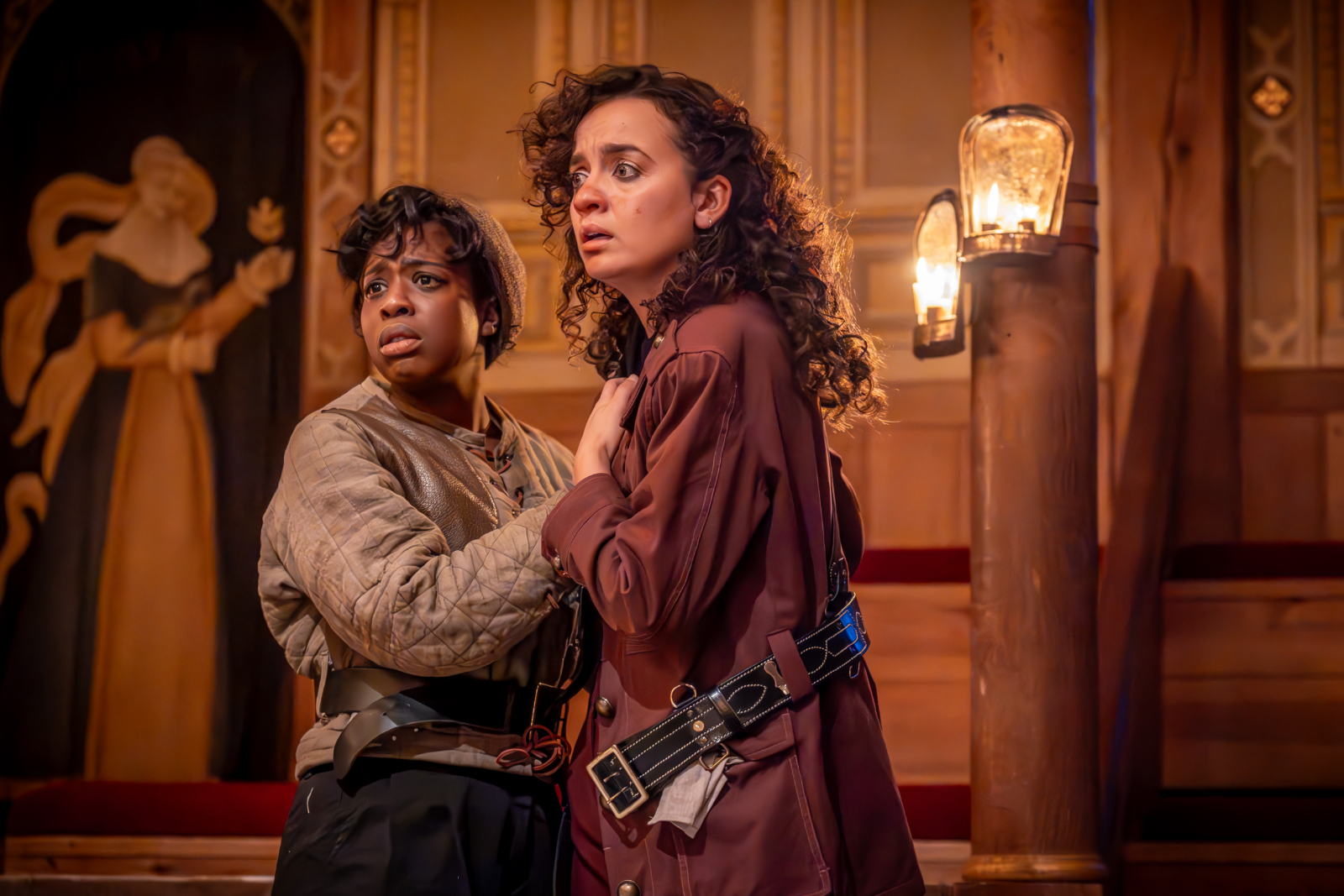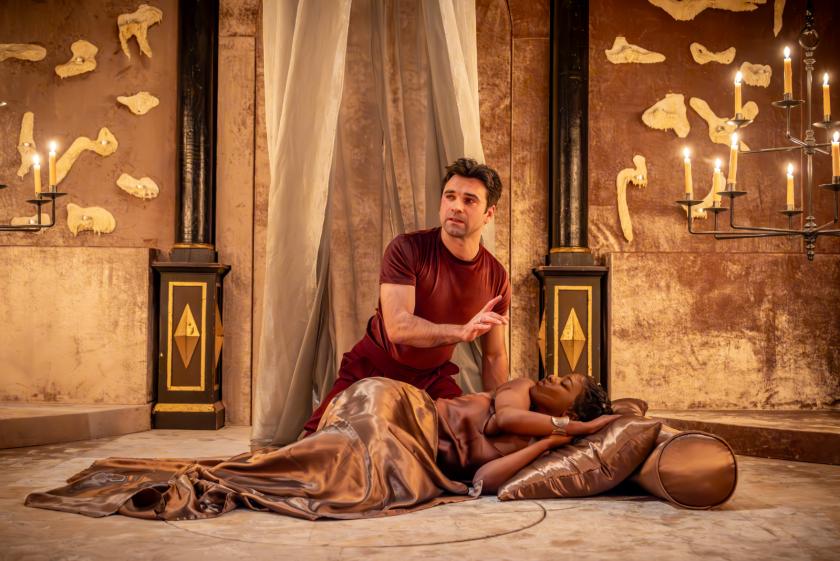There’s not much point in having three hours worth of Shakespearean text to craft and the gorgeous Sam Wanamaker Playhouse as a canvas if you merely intend to go through the motions, ticking off one of the canon’s less performed works. The question for Jennifer Tang, making her Globe directorial debut, is what to do with this beautifully wrapped gift. The question for us is does it work.
Not for the first time down by the Thames, genders are flipped, Cymbeline the Queen of a matriarchal Britain, resisting the demands for tribute from a machismo-sodden Italy. Her daughter, Innogen, is crazy in love with her wife Posthumus, who is banished by the Queen to make way for her husband’s son from a previous marriage, the thick as clotted cream Cloton (Jordan Misfud, a happy ham, chewing the scenery - were there any!) There’s a bet, some dubious voyeurism, undercover twins, plenty of disguises and a decapitation, all leading up to THE FEELGOOD ENDING OF THE SEASON, AS THEY ALL LIVE HAPPILY EVER AFTER! (Not you, Cloton - the punters need their pound of flesh).
If that sounds convoluted, try reading a few plot ‘summaries’, but that’s the deal with this play. It’s felt most strongly in a 90 minutes run to the interval which would have benefitted from a little pruning here and there. But things pick up after the break with the charismatic Belaria, Madeline Appiah laying on the charm, and her two wards Saroja-Lily Ratnavel as the incognito Arviraga and the very amusing Aaron Anthony as her also unknown and unaware brother, Guiderius. Suddenly the seats aren’t quite so uncomfortable. Much of the main plot turns on the relationships between the three central characters, in this version a trio of women. Gabrielle Brooks (pictured above with Nadi Kemp-Sayfi) gives the distraught Innogen a steely determination and a wit that is never fooled for long. She may be wholly unconvincing when in male garb (though that’s half the point, Shakespeare going a bit Carry-On as he was wont to do - he would have enjoyed seeing Babs Windsor in the role I suspect) but her passion is strong and we’re completely with her when her just deserts arrive just in time.
Much of the main plot turns on the relationships between the three central characters, in this version a trio of women. Gabrielle Brooks (pictured above with Nadi Kemp-Sayfi) gives the distraught Innogen a steely determination and a wit that is never fooled for long. She may be wholly unconvincing when in male garb (though that’s half the point, Shakespeare going a bit Carry-On as he was wont to do - he would have enjoyed seeing Babs Windsor in the role I suspect) but her passion is strong and we’re completely with her when her just deserts arrive just in time.
Martina Laird’s eponymous Queen does a lot of stern-faced scowling as a rebel ruler under siege must. Is she being homophobic in expelling her daughter’s wife? If so, it’s not driven home in the production, so it’s in the eye of the beholder, where it should be. It’s only when victory is won that Laird releases the stiffness out of her posture and expression, and we glimpse what has inspired a beleaguered people.
Nadi Kemp-Sayfi never quite comes to terms with Postumus. The wager struck with the swaggering Iachimo (Pierro Niel-Mee, never knowingly underselling the testosterone) fails to ring true - definitely a ruse one alpha male would do with another, but I suspect not with anyone not fitting that descriptor. In the same way that Innogen’s small stature and unthreatening boyish mien plausibly gains her sympathy from anyone she meets in this violent world, it’s much harder to see how Postumus’s similar physique allows her almost instant access to the overtly macho Italian militia. The problem is that much of the play's plotting depends on the appearances of the characters, so it’s hard to drop that mindset for the sake of convenience.
Silas Carson can’t do much with the role of Cymbeline’s duplicitous Duke, a male poisoner jarring against expectations but not revealing much new. Amanda Bright fares better as the bold and wise servant, Pisania, a shrewd judge of men and women, bold in risking all for what she believes to be right. Moral courage can be found in unexpected places.
Perhaps the strongest support comes from Laura Moody (good name!) and her musicians, with their ethereal soundscape that underpins a Wicker Manish paganism with many appeals to Gaia for divine intervention. This aural backdrop allows the play to be untethered in time, even if the Britons’ costumes reminded me, a little unfortunately, of the first season of Blackadder.
So there’s a lot thrown at the wooden walls of the playhouse and not all of it sticks, but enough does to make this production a success, albeit with caveats. And, if we are curling a lip at that oh so neat denouement, I remind you that mass pardons for violent challenges to power are very much on trend this week.















Add comment